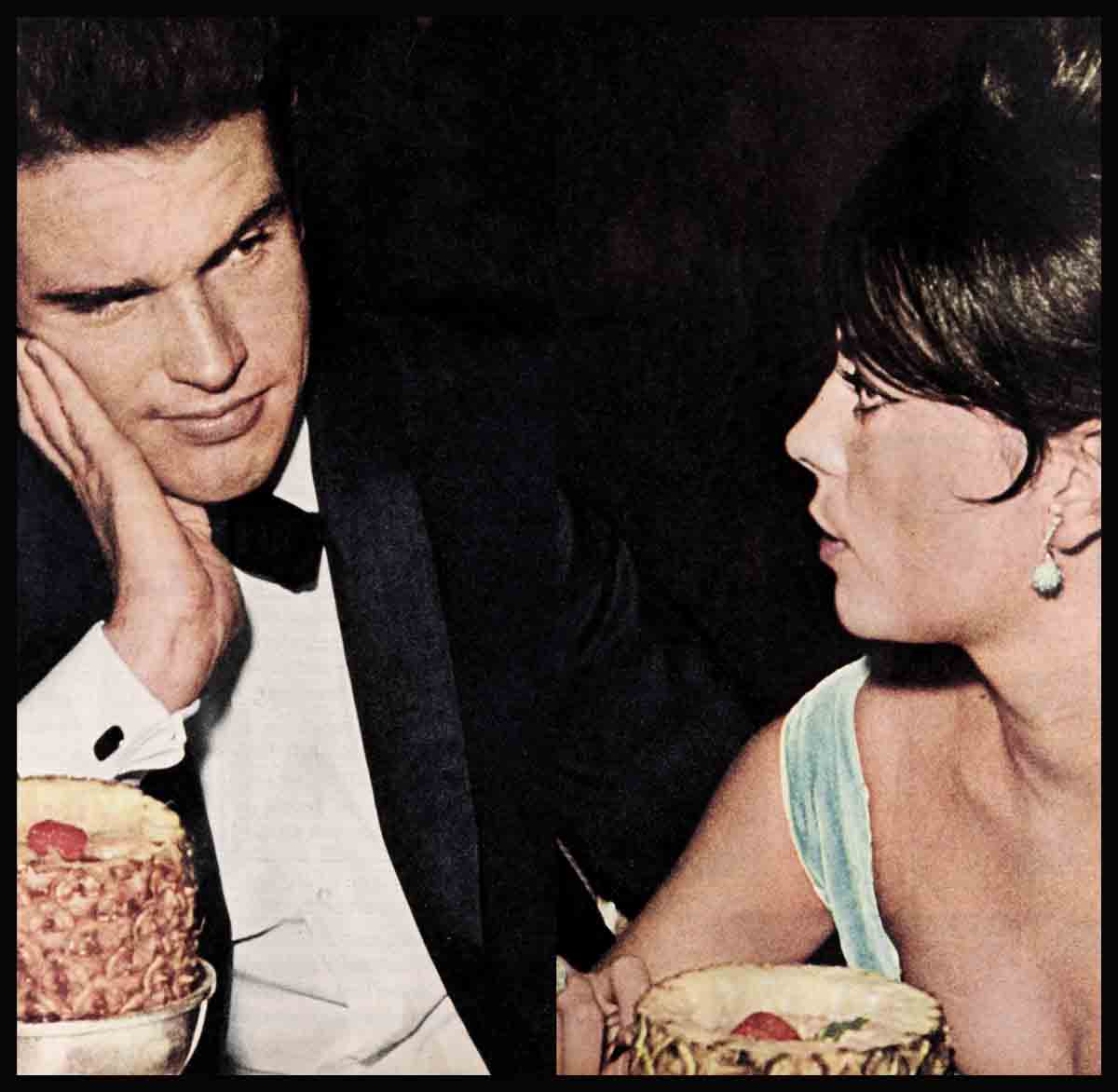
Is The Party Over?—Natalie Wood & Warren Beatty
At the very moment this is being written, Joan Collins (you remember her—she’s the gal who was all set to become Mrs. Warren Beatty; that was before Natalie Wood moved into Warren’s life and edged Joan out) and Anthony Newley (he’s the thirty-one-year-old British-born writer-composer-actor-crooner who nightly breaks the hearts of Broadway audiences when he sings the song he wrote, “What Kind of Fool Am I?,” in the show he wrote, “Stop the World—I Want to Get Off”) have been man and wife for several weeks.
At the very moment this is being written, Bob Wagner (he’s Natalie’s ex-husband and the guy who lost her to Warren) and Marion Donen (she’s the ex-wife of Stanley Donen—remember him? He almost married Liz Taylor, post-Nicky Hilton and pre-Mike Todd), are at last free to marry, now that Bob’s divorce from Natalie is final.
So for Joan (who, not so long ago, was the woman discarded) and her Tony—and for Bob (who, not so long ago, was the husband betrayed) and his Marion—the orchestra is playing love songs and the party’s just beginning.
But for Natalie (the woman who ditched Bob and snatched Warren from Joan), and for Warren (the man who gave Joan the gate and stole Natalie from Bob), as this is being written—the love song has turned sour, the thrill is gone, and their party, which blazed from Coast to Coast and from continent to continent, seems over. For them it’s three o’clock in the morning: the ashtrays are filled with burned-out butts, the liquor glasses are empty, and there’s no tomorrow. Their ”torrid romance” seems finished . . . washed up . . . pffft.
At this very moment . . . hey, wait— but what about a minute from now . . . or a day . . . or a week . . . or a month. What then?
Who will be going with, and doing what to whom? And why? And where? And for how long?
Oh, no. You don’t get us to fall into that trap. The present is confusing and changing enough. The past, if we examine the hodge-podge of interrelationships, combinations and permutations involving the foursome of Joan, Natalie, Bob and Warren, is a mess. So that in predicting the future we can only say definitely that the future is ahead.
But you say that there must be a pattern to all this, that by analyzing the past and examining the present we can predict the future and figure out what Joan and Natalie and Bob and Warren will do next. That’s logical.
Suppose we start by breaking the past up into units. We’ll call them, for our purpose, episodes.
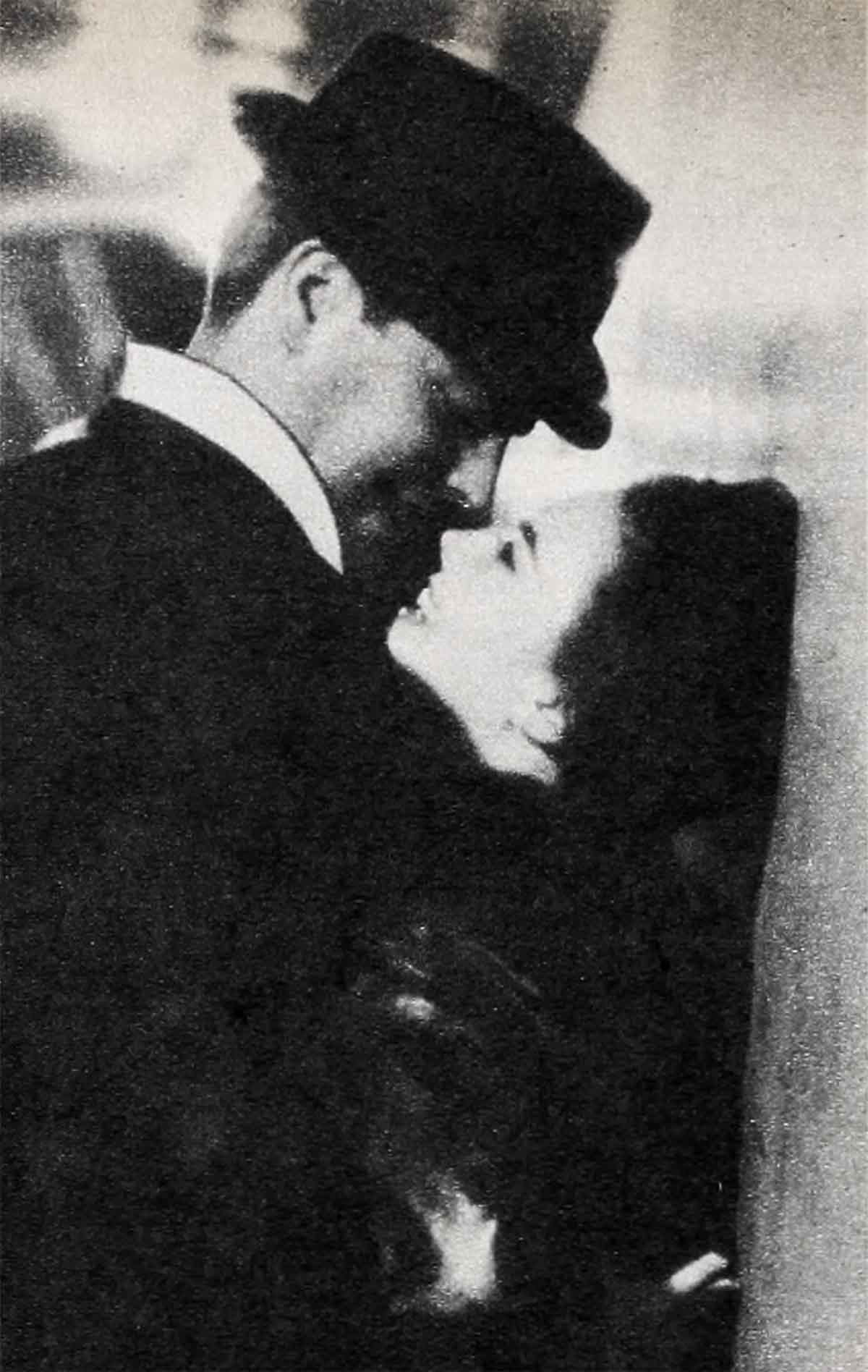
Episode I: The time is far away and long ago. The principal players are Natalie Wood and Nicky Hilton. Natalie, still a youngster, is already a veteran of the romantic wars. She’s been in and out of love with Scott Marlowe, Perry Lopez, Nick Adams, Sal Mineo, Dennis Hopper, Tab Hunter and Jimmy Dean.
Then along comes Nicky Hilton. He’s super-smooth. His little black book is filled with the names of Hollywood’s loveliest, with only one name XXXed out, that of Liz Taylor, whom he married and then divorced.
Soon Natalie is not just an- other name in his book; she’s the name. He gives her the full champagne-and-dancing-at-Mocambo treatment. But the playboy isn’t playing. This is for real. Even the columnists are convinced, and they predict wedding bells certainly will be ringing for Natalie and Nicky very soon.
Enter Joan. A green-eyed, brown-haired, not-so-gay divorcee. She looks at Nicky. Nicky looks at her. And the sparks fly.
The smoke clears. The not-so- gay divorcee is now happy. The playboy has XXXed out another name, Natalie, from his little black book and has circled Joan’s in red. And the bride-to-be becomes the bride-that-wasn’t and retires to whatever island is reserved for gals who almost were elected Miss Rheingold and for other near-winners like that.
In due time Joan and Nicky call it a night, but not before the columnists had also predicted that their wedding was imminent.
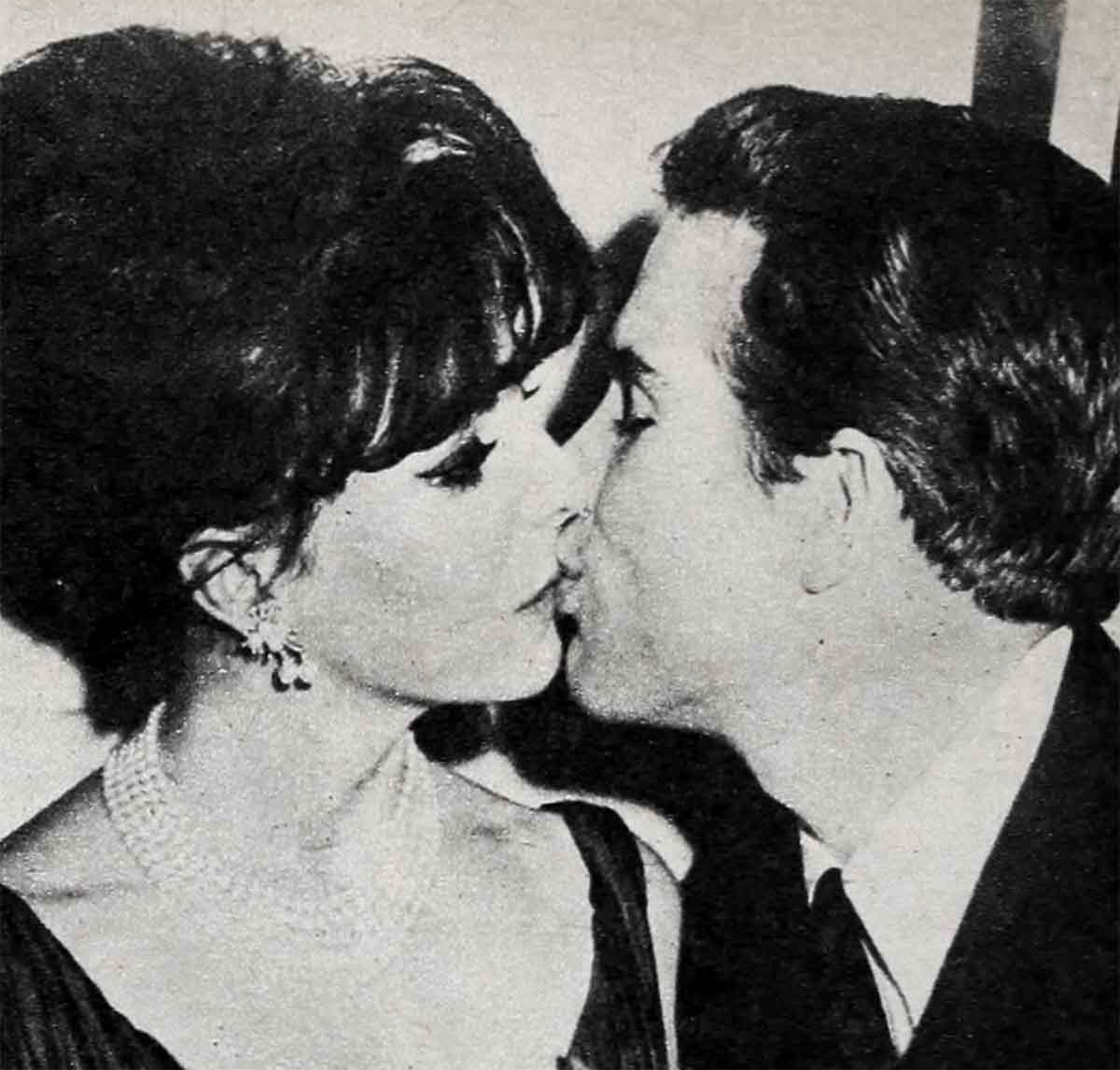
Analysis: Easy. In the romantic wars Joan has too many weapons for Natalie and can out-woman her every time. Or, if you’re keeping score, at the end of the first inning (episode) it’s Joan Collins—1, Natalie Wood—0.
Episode II: The time is not so very far away and not so very long ago. The principal players are Joan Collins and Bob Wagner.
Joan and Bob had dated on and off since she first came to Hollywood to test for “Lord Vanity” with him. But now, where before they simmered, they’re sizzling. To judge by the columns, it’s only a matter of days before they’ll walk down the center-aisle together. This one’s for real.
Enter Natalie. Poof—out goes the flame between Joan and Bob, and their romance is as cold as yesterday’s wedding predictions. Now the columns are filled with new marriage predictions for Bob—except hat Natalie’s name has replaced Joan’s as his future bride-to-be.
Exit Joan—but not without one last loud meow. She’s a guest on the ”Ed Sullivan Show” shortly after Natalie and Bob have announced they’re engaged. Ed looks into the TV camera, cracks his knuckles to get the attention of his millions of viewers and wishes Bob “lots of luck” in his forthcoming marriage.
Joan bats her beautiful eyes, opens her beautiful lips and ad- libs the lines, “Lots of luck is right. He’ll need it with Natalie.”
Analysis: Uh, easy. In the romantic wars . . . uh . . . Natalie has too many weapons for Joan and can out-woman her every time. Or, if you’re keeping score, note that at the end of the second inning (episode) it’s Joan Collins—1, Natalie Wood—1.
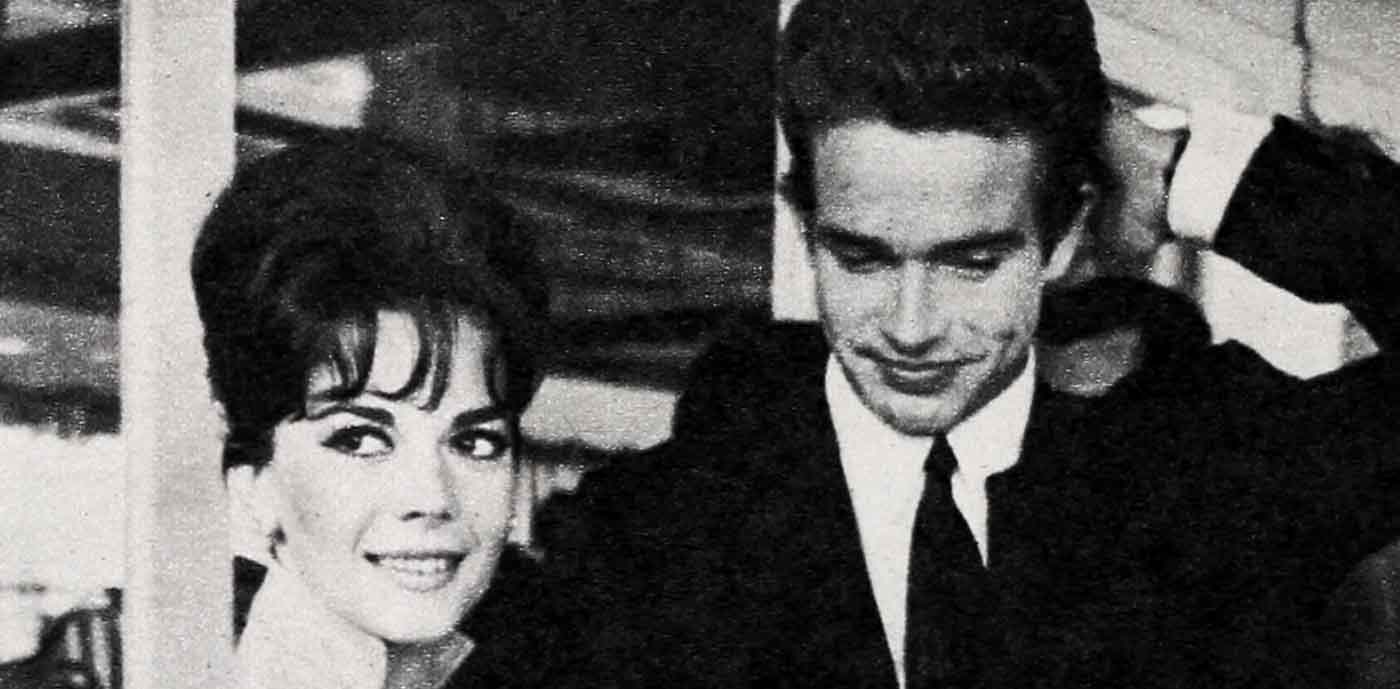
Episode III: The time is a few years back. The principal players in this episode are Joan Collins and Warren Beatty.
As Bob and Natalie’s marriage, after an auspicious beginning, slowly runs downhill (her career skyrockets, his fizzles) until it’ll be only a matter of time before they reach the point when “debts us do part,” Joan finds love in the person of a brash, handsome heartbreaker, Warren Beatty.
Warren is smitten by Joan when he sees some still photos of her, and then he goes to a showing of “The Big Country,” her film, to get a better look.
Here’s Joan’s account of it: “We had not met at this stage and Warren went along to the film to decide whether he would like to meet me in person. Well, he was very disillusioned by what he saw. And he came away saying I was not so hot after all.”
But when he does see her in person— in a Hollywood restaurant, he must like what he sees because—even though he is out with another girl—he flirts outrageously with her. She is outraged (and secretly flattered) until she finds out that the girl he’s with is his sister, Shirley MacLaine; then she is just flattered—and also pleased.
They see each other again at a party a few days later, but again they don’t say a word. Even when she invites a few of the guests to her apartment for coffee after the party breaks up—and makes sure that Warren is given her address and phone number and is asked to come along, she is disappointed. Because he doesn’t show up.
Yet when she arrives home the next afternoon, her answering service tells her Warren has called six times. She phones him back just to tell him how surly he’d been the night before, but instead she hears herself accept- ing his invitation for dinner.
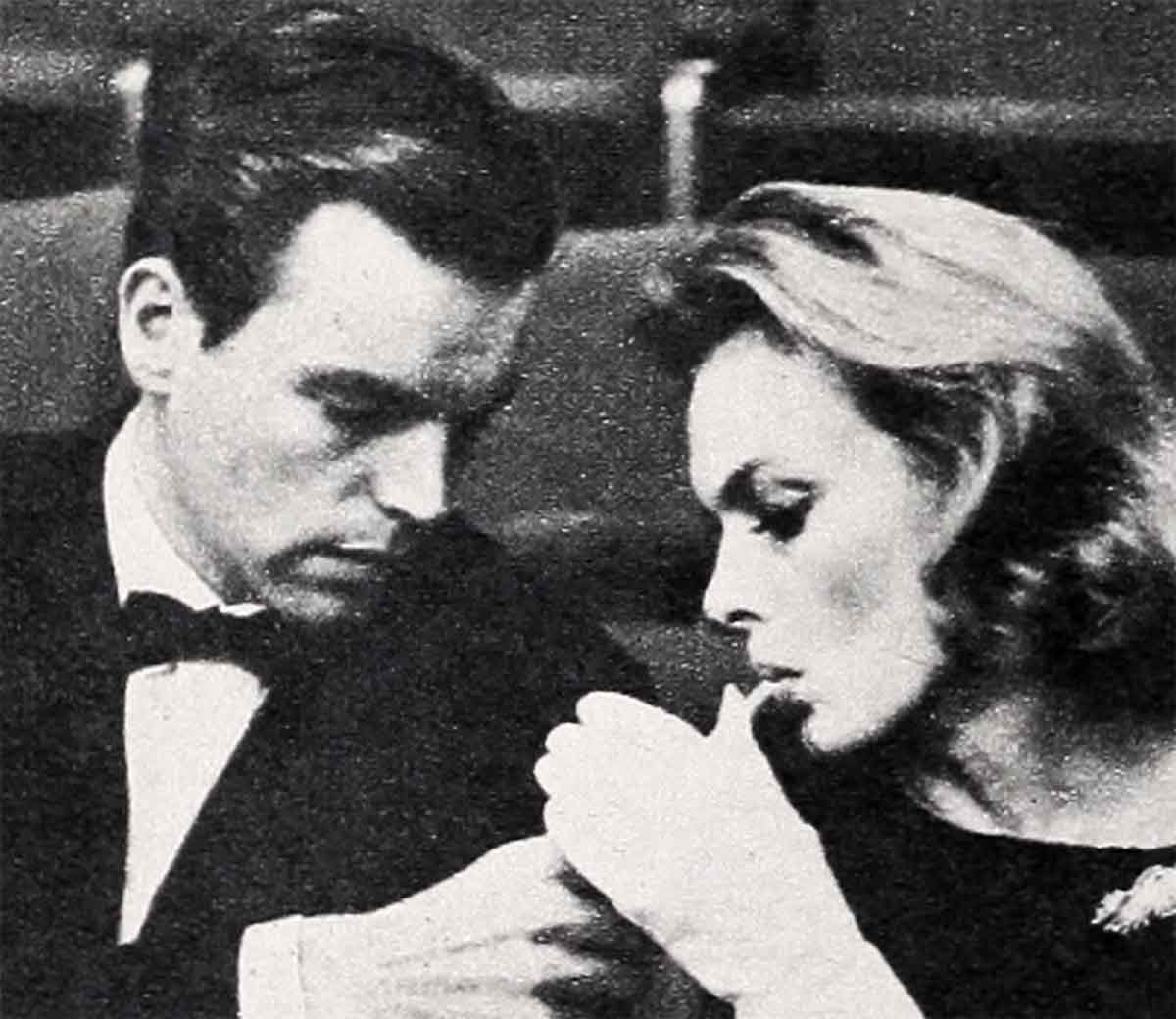
All right. She’ll tell him off in person. That is only fair.
But as she sits across from him in the little Mexican restaurant, he beats her to the punch. “I was very depressed on Saturday and when they asked me to come over to your apartment I didn’t want you to see me in such a blue mood,” he explains.
Before she can graciously accept his apology, he boyishly tells her that he was so happy when she agreed to have dinner with him that he rushed out and had ”an ice cream cone to celebrate.”
That does it. That and his blue eyes and . . . she can’t help it, she feels herself melting.
Then, for almost two years, she knows the joys of love. Her own words chart the course of their passionate romance.
“We’re not officially engaged yet. But that doesn’t matter either. I trust our love.”
“We are going to announce our engagement soon, but we won’t get married for quite a while.”
”We’ve been engaged a year. That is because both of us like long engagements.”
“Yes, we hope to get married, but I don’t know when.”
“Now you be sure and say I love him very much.”
She loves him so much that she can’t bear to be away from him and leaves movie sets at a minute’s notice (and sometimes without any notice), to fly to his side. An executive at 20th Century-Fox comments wryly, ”When Joan is in love she simply takes off and to hell with her work, her career and her studio.”
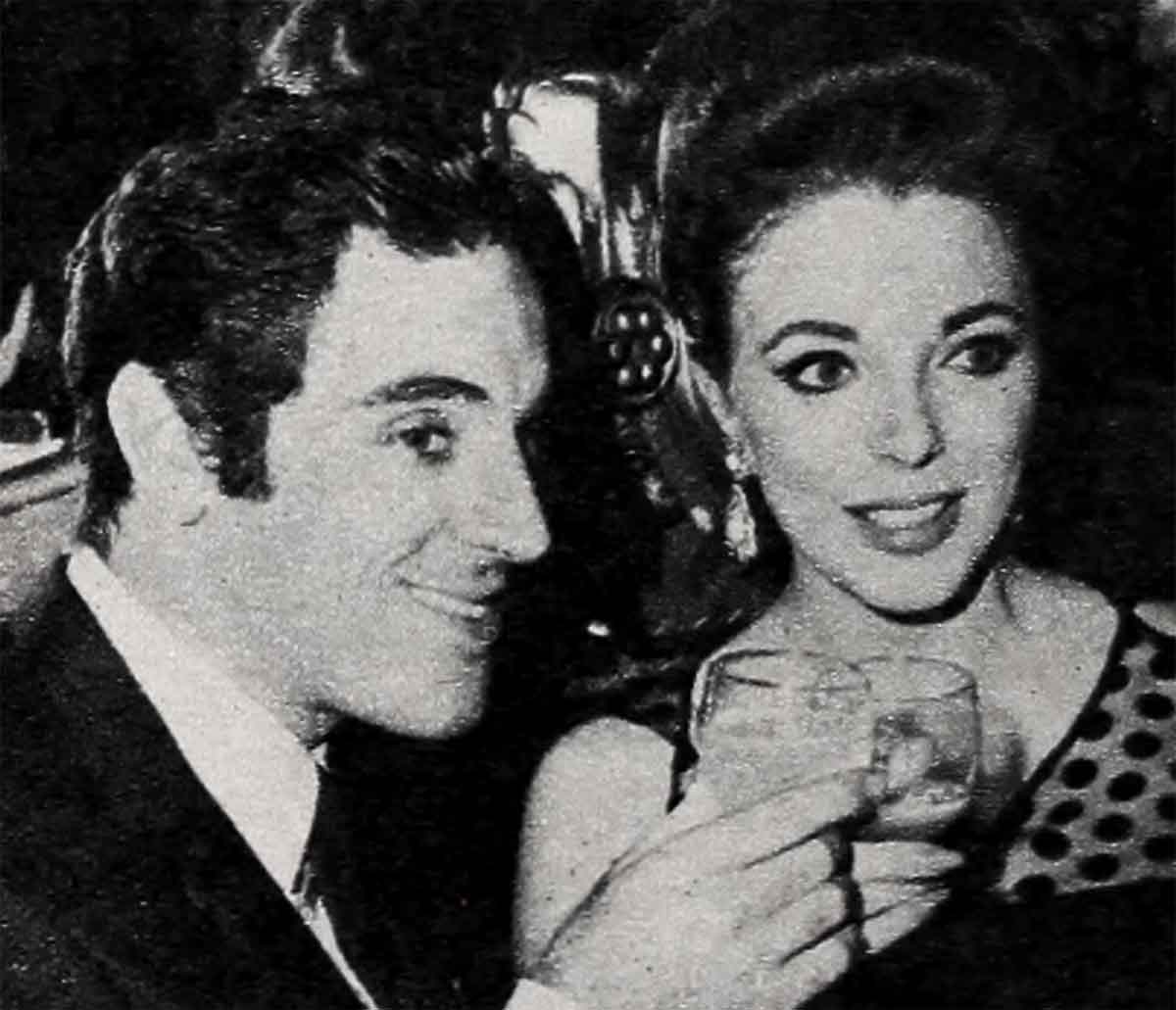
So the day comes when Joan making, “Esther and the King” in Rome, is so miserable without Warren that once again she boards a plane for New York to be with the man she loves. Even as she heads for Manhattan where Warren is filming “Splendor in the Grass” with Natalie Wood, all the columnists are emphatically heralding an imminent Collins-Beatty merger.
Analysis: Well, a long engagement probably precedes a long marriage. Now, if Natalie and Bob had had Joan and Warren’s good sense to have a long engagement so they could really get to know each other, maybe their marriage wouldn’t be coming apart at the seams. Or, if you’re still keeping score, at the end of the third inning (episode) it’s Joan Collins—2, Natalie Wood—1.
Episode IV: The time—it seems like only yesterday. The principal players are Natalie and Warren.
Joan watches Natalie and Warren playing love scenes in “Splendor in the Grass,” and sees more than she wants to see. If that’s acting they’re doing, it must have taken a lot of rehearsing.
Bob watches, too, every now and then, but maybe he just thinks his wife is a good actress. (Once, a publicity man asked Natalie, “Where’s R.J.?”—that’s what they all call Bob—“Oh,” she replied, yawning, “he’s out shopping for a scarf for me.”)
But when “Splendor” is finished, Natalie and Bob and Joan and Warren (or should it be Natalie and Warren and Joan and Bob?) confuse everyone. Sometimes the four of them go out together, although it’s not too clear who’s with whom.
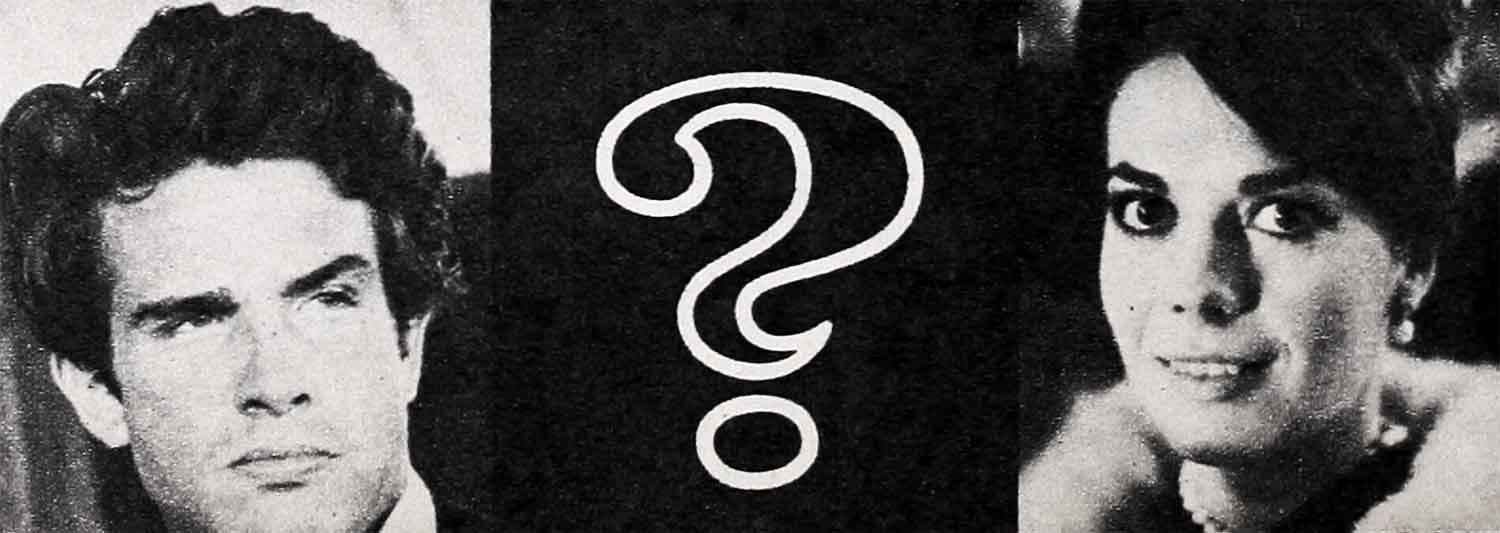
Clarity comes the night Bob finishes shooting “Sail a Crooked Ship.” He throws his traditional farewell party for the crew, at which he and Natalie always tend bar together, but his wife doesn’t show and he dispenses drinks alone.
An hour and a half late, Natalie waltzes in with Warren. Just time for a quick hello and they’re off again on their own.
An hour later they’re back again. But it’s too late—the party’s over.
The following night Natalie, Warren, Bob and Joan have a council of war at the Villa Capri. There are heated words. Bob and Natalie get up and stalk out of the restaurant. That’s the last time they’re together.
The next day Natalie’s press agent issues a statement: “Natalie Wood and Robert Wagner today announced they have separated.” For Natalie and Bob and for Joan and Warren, the party is over. But for Natalie and Warren it’s just beginning.
It takes exactly eleven minutes for Natalie to win an uncontested divorce from Bob (although, under California law, a year must go by before the final decree is granted). One of the charges she makes against him in court is that “he criticized my friends.”
Analysis: Help! Or, if you haven’t torn up your scorecard in frustration, at the end of the fourth inning (episode) it’s Joan Collins—2, Natalie Wood—2.
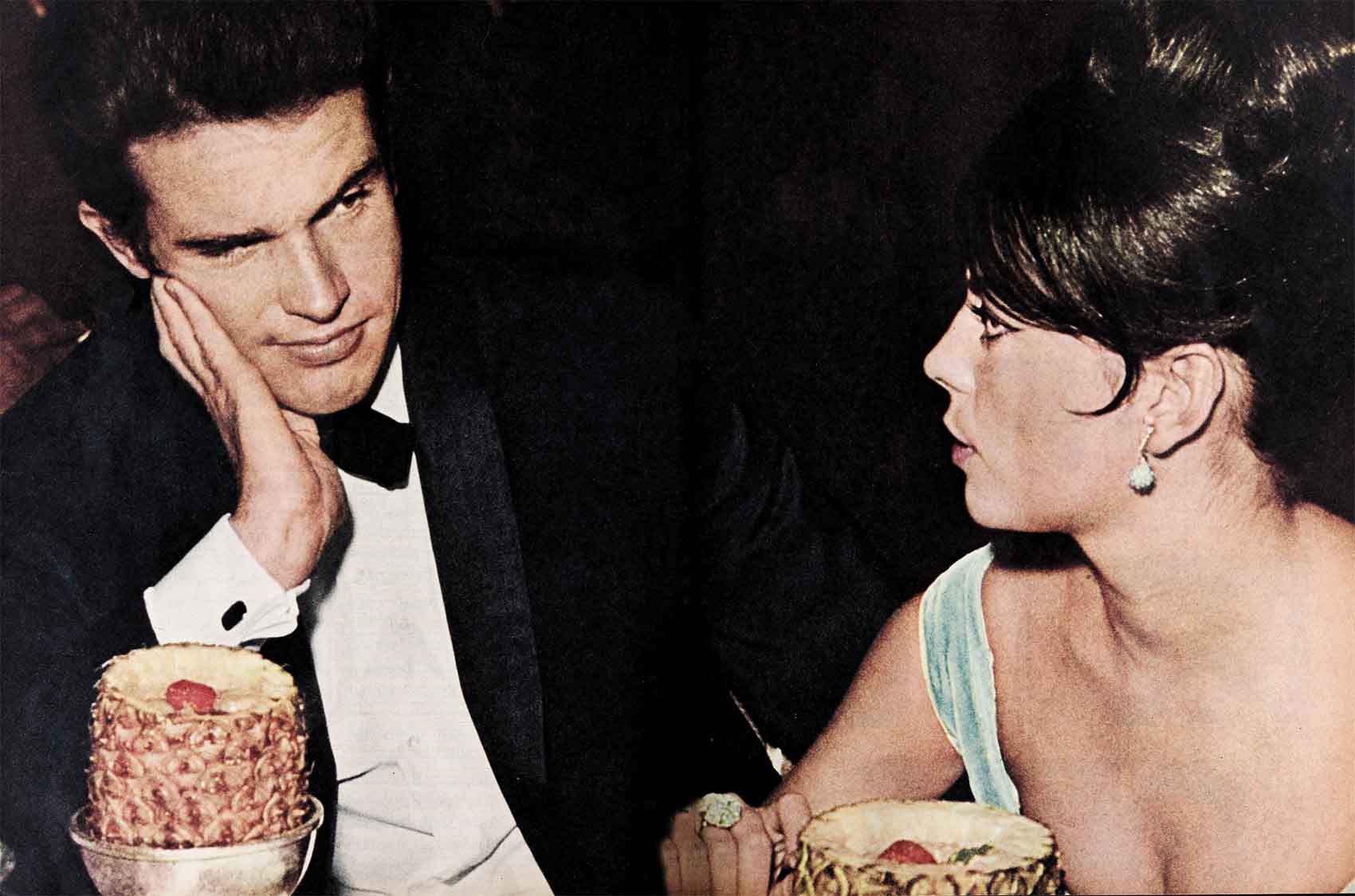
Episode V: The time is shortly after the previous episode. The principal players are Joan Collins and Bob Wagner.
Joan flounces off to London to make “Road to Hong Kong” with Bob Hope and Bing Crosby. From there she announces (surprise!) that her engagement to Warren is broken. Later, she says, “Warren Beatty and I never would work out. What would a boy do with a woman?”
Bob flies over to London and he, too, makes a statement. “I do not believe that this thing between Warren and Natalie just happened. I don’t trust that guy. This whole business smells of trickery. If Warren needs the publicity so badly, why didn’t he pick on someone else’s wife instead of mine? While he was engaged to Joan Collins, he was going around telling people he was too young to marry. There is every indication that he never intended to marry Joan.”
The words of a true gentleman. And for a gentleman the only decent thing to do is to console the lady. Consoling Joan proves to be pleasant work, so pleasant, in fact, that soon the London columnists are predicting that once the Wood-Wagner decree becomes final. Bob and Joan might fool everyone by beating Warren and Natalie to the altar.
Analysis: Misery loves company, especially when that company’s young and beautiful. Score? How do you figure a rebound? A half? Okay. Let’s record it as Joan Collins—2½ , Natalie Wood—2. Better yet, let’s throw the scorecard away and concentrate on the game. Now it really gets mixed-up.
Episode VI: The time is here and now. The principal players are Bob Wagner and Marion Donen, his fiancee.
After Bob’s brief fling with Joan after his break-up with Natalie, he hooks up with Marion, ex-wife of director Stanley Donen (who was Liz Taylor’s boy friend after she divorced Nicky Hilton). And they prepare to get married.
Trouble comes. Stanley goes into court in an attempt to gain custody of the two children Marion bore him during their marriage, and prepares to cite his ex wife’s relationship with Bob as the reason he should have the kids.
The lovers and the children flee from Rome and return to America. There, temporarily at least, Marion is protected from the British court.
Bob announces that he and beautiful Marion will be married. Bob buys a big. beautiful new home at Tarzana, twenty miles from Hollywood. Bob signs a new contract (also beautiful) with Columbia. Bob loves Marion, Marion loves Bob; the columnists churn out beautiful prose proving that for this beautiful couple life can be beautiful.
Analysis: The party’s in full swing and it’s . . . it’s . . . it’s beautiful.
Episode VII: The time is here and now. The principal players are Joan Collins and Tony Newley.
Back in April, by an extraordinary action of Judge Francis Glazebrook of the London Divorce Court, the way is cleared for them to marry immediately.
The court hearing is very cozy. Tony’s wife of nine years, 27-year-old blonde actress Ann Lynn, of Craven-Terrance, Bayswater, London, accuses her thirty-one-year-old husband of having committed adultery with thirty-year-old Joan Collins. Then Mrs. Newley freely admits to having committed adultery herself.
Statements are read to the court by Ann’s lawyer, one from Joan and one from Tony and signed by each, confessing to adultery. A third statement, a medical report, is also submitted to the judge.
Ann’s counsel, using legal mumbo-jumbo, says to the presiding magistrate: “I invite you to say that, in all the circumstances disclosed by Mr. Newley and Miss Collins, this is a proper case for expedition of the decree absolute.”
Translation: given the special circumstances, forget the usual three-month waiting period before the divorce becomes final and grant it now.
Judge Glazebrook agrees and immediately grants a decree nisi, effective right away. The New York Daily News, in commenting on the decision and obviously referring to the medical report submitted in evidence on behalf of Joan and Tony, states, “Divorces are seldom expedited in England except in cases of emergency, such as a baby being expected.”
So Tony took a day off from the theater and he and Joan went up to Connecticut and got married. Now in New York, Tony, when not performing in “Stop the World—I Want to Get Off,” holds forth in his twenty-ninth-floor penthouse apartment, where he and Joan are very domestic.
She loves Tony and Tony loves her and their marriage will be “forever” and. . . .
Analysis: The party’s official and legal and it’s . . . it’s . . . it’s beautiful.
Episode VIII: The time is here and now. The principal players are Natalie Wood and Warren Beatty.
The party, which bubbled from Coast to Coast and boiled from continent to continent, is now over. The love song has turned sour, the thrill is gone, and for Warren and Natalie it’s always three o’clock in the morning—ashtrays filled with burned-out butts, liquor glasses empty, and no tomorrow.
“Love is the most important thing there is in life,” Natalie says at the height of the romance.
“I don’t think I should talk about marriage when I won’t be free for five months,” Natalie tells a columnist back in December, 1962.
“I don’t feel I’m ready for marriage,” Warren says all along the way. “I am confused about marriage.”
Then comes the day that Natalie’s decree of divorce from Bob Wagner is final. At long last she and Warren are free to marry.
But instead they split. Their torrid romance is as dead as the cigarette ashes in the ashtrays. It’s finished . . . washed up . . . done . . . pfft.
Who got tired of whom? Well, you pays your money and takes your choice among what columnists say.
If you read John Miller, you’ll learn that “Natalie’s mother wasn’t too thrilled when she met Warren Beatty—which is why they cancelled their marriage plans.”
If you read Alex Freeman, you’ll learn that “Natalie Wood is furious with Warren Beatty. No sooner had she told him that their romance was over, than he gave her private phone number to another guy.”
If you read Lee Mortimer, you’ll learn that “the real reason behind the re- ported ending of the Natalie-Wood-Warren Beatty romance could very well be the leader of the Rat Pack himself.”
If you read Suzy, you’ll learn that “Natalie Wood, who has brushed Warren Beatty aside, attributes her courage to make the break to analysis.” That’s not the kind of analysis we’re presenting in this story, but psychoanalysis, hers not his.
You notice, of course, that all the above items seem to indicate that it is Natalie who called off the wedding and it is Natalie who told Warren, “Stop the party—I want to get out.”
But there are those columnists who claim that it’s Warren who skipped out on Natalie.
Miss Graham, who tells us why Natalie won’t marry Warren, also makes mention of Warren’s “off-hand treatment of a pretty young lady star by the name of Natalie Wood.”
While columnists hint that the break-up is caused by Natalie’s turning to another man—especially Arthur Loew—there are many column items which claim that Warren has eyes for another woman (or, to be accurate, other women): socialite Alicja Darr, Purdom Clark, showgirl Nan Whitney, Carol Rossen.
Natalie herself is not without comment on all of this. For one thing, despite Suzy’s item, Nat denies she visits a psychiatrist.
“And if I did,” she adds, “it wouldn’t be because of Warren. Actually, we have not broken up. He’s just out of town. Sure, I go out with Arthur Loew. Who doesn’t? Arthur is an old friend, after all, and I’m sure Warren doesn’t mind.”
When a columnist had her so lonesome for Warren she was flying to his set, she said, “I never visited Warren in Baltimore where ‘Lilith’ is shooting. I haven’t seen him in two months. I just figured it was an out-of-town location so I left him alone. I didn’t bother him. I still love him. I think he still loves me.
“We have been in love a long time. I talk with him often on the phone. We are still friendly.”
If you talk to Natalie’s press agent, he’ll back her up. But if you talk with some of her friends, you’ll find quite a different story. No one has much of a good word for Warren. Insiders speculate that although Natalie’s marriage got lost in the process of finding Warren, that although she is the bigger star and their ocean-hopping romance has given the young actor more publicity than any of his films have—restless Warren is about to say “Get lost.” If he hasn’t already. Natalie is a firm believer in marriage. Warren seems to be a firm believer in the value of various ways to help his career, ways more pleasant—until he gets bored—than working. Warren is a strange one to figure out, they say, but as insiders hint discreetly, once you begin to understand what he’s up to, you don’t want to believe it.
His own sister, Shirley MacLaine says, “We just have no communication. And I used to be very friendly with Natalie at one time. Now I don’t have any communication with her since she’s been going with my brother. Kinda crazy, isn’t it?”
Yes, kinda.
Analysis: Maybe Warren ditched Natalie because he just doesn’t want to be tied down. “I’m not really sure what I want to do or where I want to live,” he says. “I like California but what I’d really like to do is sit there and do nothing. . . . I lead a very disorderly life. I get into things, I jump from one thing to another. I jump to Paris, London and New York.”
Perhaps Natalie ditched Warren because he’s so sure of himself, so cocky, so snippy. Like when Jack L. Warner offered him the role of John F. Kennedy in “PT 109” and suggested that before he said yes or no he should visit Washington, meet the President and soak up some atmosphere.
Was Warren flattered? Excited? Cooperative? Agreeable? Not on your life. To the head of Warner Brothers he replied. “If the President wants me to play him. tell him to come here and soak up some of my atmosphere.”
In short, there are parties and parties—the wild, let’s-live-tonight-’cause-there’s-no-tomorrow kind that sizzle, flare, skyrocket and then burn out; and the other, quieter, lasting kind where the thrills are spaced out over a long period of time and are bound together by a wedding hand.
The Future: Simple. Now that we’ve logically and scientifically examined the patternless pattern, we confidentially predict the following will happen: Warren will take Marion away from Bob; Joan will divorce Tony and name Natalie as the “other woman”; then Joan will console Richard Burton after Bob runs off with Liz Taylor.
Absurd? Well, when you read all this in the papers, don’t say we didn’t warn you.
THE END
—JIM HOFFMAN
It is a quote. PHOTOPLAY MAGAZINE SEPTEMBER 1963


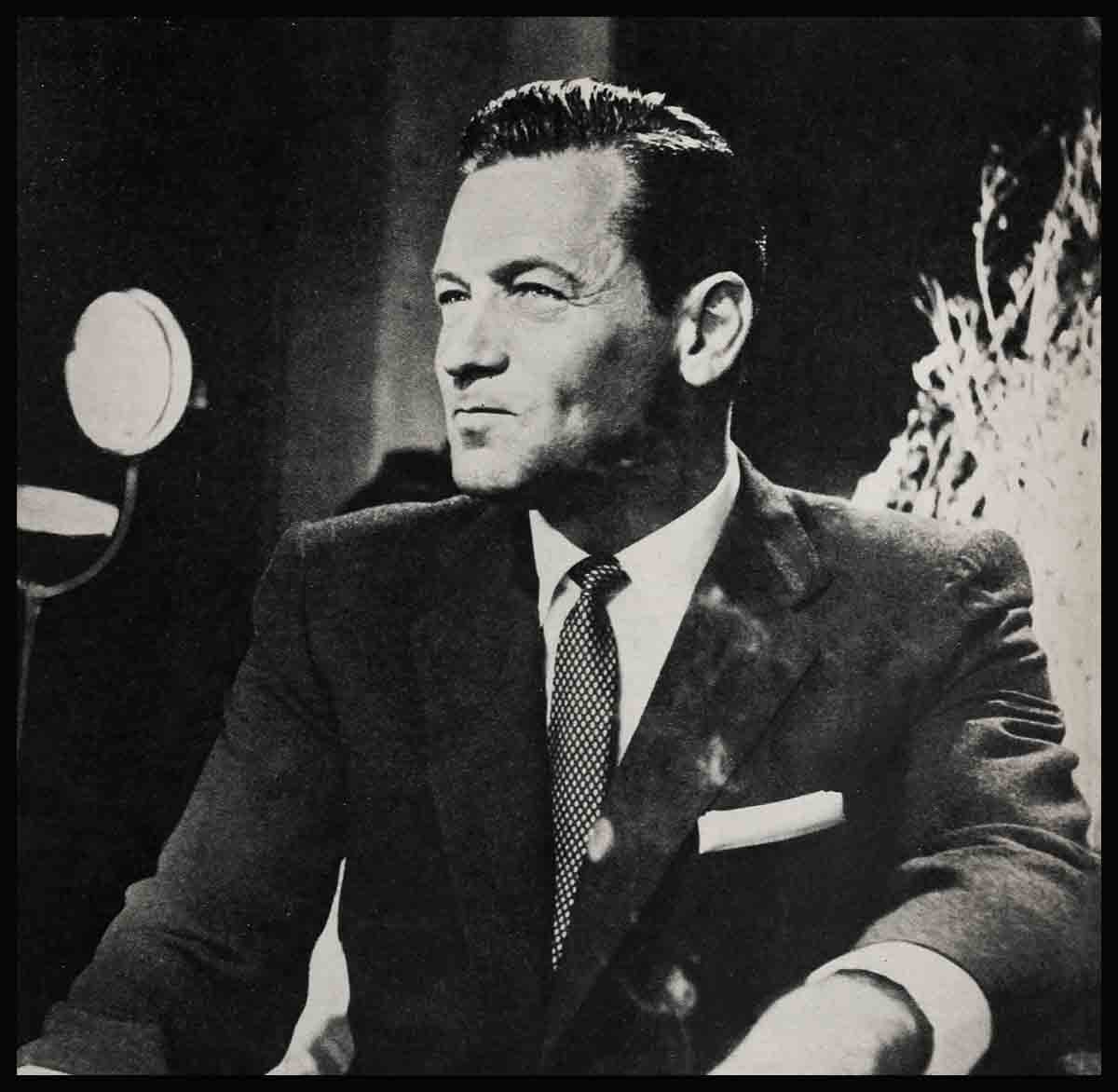

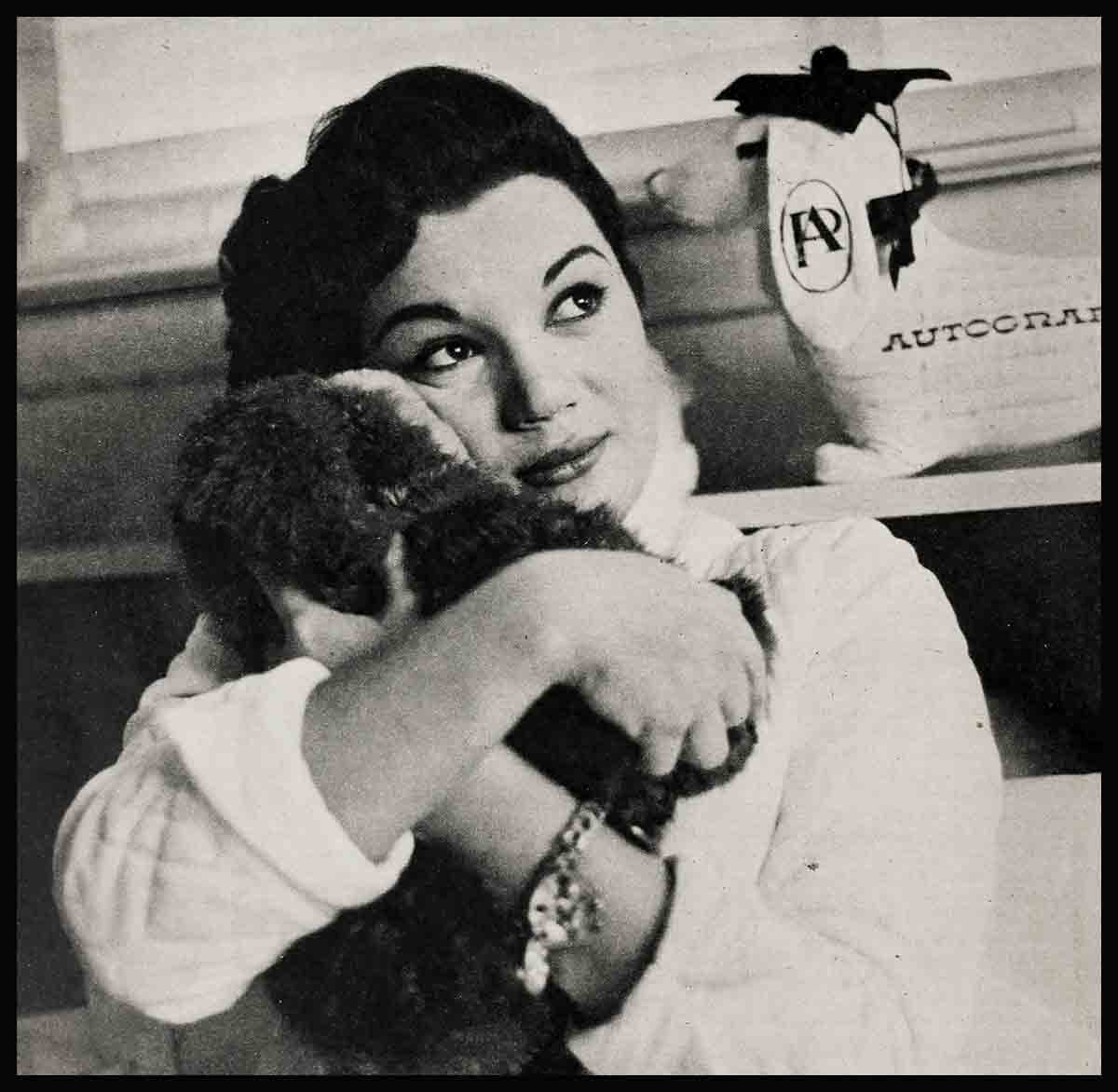
No Comments